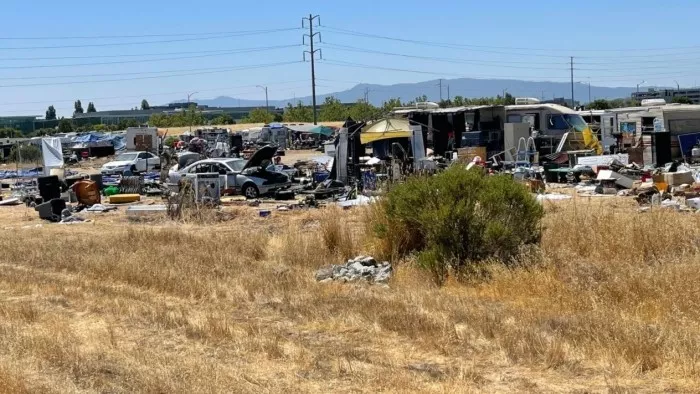Apple has spent millions of dollars supporting people moving from homeless camps on its property, but as nine months of support dried up, many have yet to find permanent housing After months of discussions in 2021, apple expelled 56 people from the homeless camp on Apple's 55 acres in September. Dozens of displaced persons were placed in a motel for nine months and were helped to find a new home.

Nearly nine months later, with people's deadline approaching, many people are still unable to find a permanent home. According to fltimes, of those who were placed in the San Jose Motel, only 8 have successfully transferred to permanent families, and more than three times have not been placed.
Lori Smith, CMO of homefirst, a non-profit organization, said: "we know that [motels] are quite effective for some project participants, while it takes more time for others. Everyone has their own homeless journey, everyone has their own way out - and rarely the same."
Apple said it "has been working with partners across the state to support risky communities and provide new affordable units."
However, the obstacles encountered by the project are the lack of appropriate affordable housing, managing the historical and medical needs of participants, and other restrictions.
Homefirst plans to find a place to settle before the end of the motel project, but as of May 16, 25 people are still in the motel. Those who are still there by the deadline will be provided with emergency shelter beds.
Those who left moved into permanent or transitional housing, including small houses and apartments, as well as family members. More than a quarter of the participants received medical services or social security or other benefits, and almost all were included in the housing waiting list. Ten people left the project for violating regulations or being arrested.
Although the project has so far cost Apple millions of dollars in operating expenses and helped a group of homeless people for nine months, it still faces criticism of terminating the project.
Cartwright complained that the stable hotel provided this kind of thing, but then the people from the company took it away. Cartwright pointed out how residents benefit in terms of physical and mental health, and he insisted that Apple should extend the project.
"If they end up on the streets, it's entirely Apple's fault. It's Apple's shame," Cartwright said.
The report highlights the plight of two non resettled participants. In the case of Bertha Iglesias, 65, her plan was to move back to a trailer and park it on a street near her mother's house.
Richard bebee was told by the staff of the program that he could enter the permanent house through the program, which led him to sell his truck and try to obtain a commercial driving license. However, he was unable to raise funds for training and examinations. Bebee, 50, got a position in a small house, but he decided not to seize the opportunity.
Homefirst CEO Andrea urton stressed Apple's key role in funding the project, but the project can only go so far. Urton mentioned the shortage of permanent housing in the area and that participants did not necessarily meet the criteria for resettlement housing. He acknowledged that "this is all we can do: provide services, support, encourage and allow them to make their own decisions".